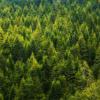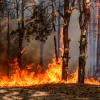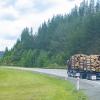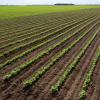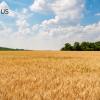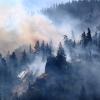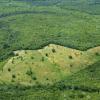The focus of the AFE Group is to generate knowledge and develop state-of-the-art modeling tools to advance the scientific community and support policies that enable better understanding and management of global and regional agriculture, forestry, and natural land ecosystems.
The basis for improved assessment and management of natural resources is a deep understanding of complex and interacting biophysical processes within terrestrial ecosystems. The AFE Group aims to achieve a leading position in addressing research questions requiring integrated analyses of agriculture, forestry, and natural land ecosystems at global and regional levels.
The group’s strategic ambition of biophysical tool integration for, among others, the assessment of nature-based/climate solutions, landscape restoration options, agro-forestry, or future cropland management, is at the core of the IIASA research domain on biodiversity and ecosystem services. With sustainability and biodiversity aspects as cross-cutting environmental safeguards, the group is closely aligned with the strategic direction of its host program on Biodiversity and Natural Resources. This structural and strategic setup will ensure that AFE becomes a valuable research pillar and contributor to the overarching IIASA strategy.
Models, tools, datasets
Projects
Staff
News

26 February 2025
China Scholarship Council awardees hosted at AFE

24 January 2025
Delegation from Greece visits IIASA to explore further collaborations

12 December 2024
Moose Browsing Damage in Swedish Forests
Events
Austrian Academy of Sciences, Dr. Ignaz-Seipel-Platz 2, 1010 Vienna
IIASA-OeAW lecture: research and prevention of forest fires
Focus
09 April 2024
Forest science and education in Ukraine: Priorities for action


24 February 2022
The number of tree species on Earth
Since humans have walked this planet, we have loved categorizing things and ecology is no exception. One of the most basic ecological questions has always been the simple question of “how many?”
Publications
Pohanková, E., Hlavinka, P., Kersebaum, K.C., Nendel, C., Rodríguez, A., Balek, J., Balkovič, J. , Dubrovský, M., Hoogenboom, G., Moriondo, M., Olesen, J.E., Pullens, J.W.M., Rötter, R.P., Ruiz-Ramos, M., Shelia, V., Skalský, R. , Hoffmann, M.P., Takáč, J., Thaler, S., Eitzinger, J., Dibari, C., Ferrise, R., Leolini, L., Bohuslav, J., Bláhová, M., Fischer, M., & Trnka, M. (2025). Climate change impacts on two European crop rotations via an ensemble of models. European Journal of Agronomy 164 e127456. 10.1016/j.eja.2024.127456. Fransson, P., Lim, H., Zhao, P., Tor-Ngern, P., Peichl, M., Laudon, H., Henriksson, N., Näsholm, T., & Franklin, O. (2025). An eco-physiological model of forest photosynthesis and transpiration under combined nitrogen and water limitation. Tree Physiology 45 (2) tpae168. 10.1093/treephys/tpae168. See, L. , Chen, Q., Crooks, A., Laso Bayas, J.C. , Fraisl, D. , Fritz, S. , Georgieva, I. , Hager, G. , Hofer, M. , Lesiv, M. , Malek, Z. , Milenkovic, M., Moorthy, I., Orduña-Cabrera, F. , Pérez Guzmán, K. , Shchepashchenko, D. , Shchepashchenko, M., Steinhauser, J. , & McCallum, I. (2025). New Directions in Mapping the Earth’s Surface with Citizen Science and Generative AI. iScience e111919. 10.1016/j.isci.2025.111919. (Submitted) Valverde‐Barrantes, O.J., Lugli, L.F., Fuchslueger, L., Hofhansl, F. , Martins, N., Cordeiro, A.L., Schapp, K., Anderson, K., Garcia, S., Grandis, A., Miron, C.A., Fleisher, K., Hoosbeek, M.R., Hartley, I.P., Oblitas Mendoza, E., Lapola, D., & Quesada, C.A. (2025). Rainfall seasonality shapes belowground root trait dynamics in an Amazonian tropical rainforest: A test of the stress‐dominance hypothesis. Functional Ecology 10.1111/1365-2435.14744. (In Press) Boonman, A., Fukuda, S., Tiwari, S., & Kraxner, F. (2025). Two-Phase Approach for Designing Sustainable Biomass Supply Chains for Community-Scale Biomass Power Plants in Thailand. Energies 18 (3) e520. 10.3390/en18030520. Yuwono, B., Kranzl, L., Haas, R., Dewi, R.G., Siagian, U.W.R., Kraxner, F., & Yowargana, P. (2025). Incorporating grid development in capacity expansion optimisation - a case study for Indonesia. Applied Energy 378 e124837. 10.1016/j.apenergy.2024.124837.


